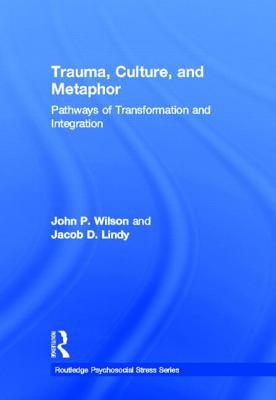
- We will send in 10–14 business days.
- Author: John P Wilson
- Publisher: Routledge
- ISBN-10: 0415953308
- ISBN-13: 9780415953306
- Format: 15.8 x 22.9 x 1.8 cm, hardcover
- Language: English
- SAVE -10% with code: EXTRA
Reviews
Description
In Trauma, Culture, and Metaphor, John Wilson and Jacob Lindy explore the language of both individual and collective trauma in an era dominated by globalization and interconnectedness. Through lucid, careful discussion, this important book builds a bridge between the etymology of trauma-related terms commonly used in Western cultures and those of other cultures, such as the Burundi-Rwandan ihahamuka. It also provides the clinician with a framework for working with trauma survivors using a cross-cultural vocabulary-one often based in metaphor-to fully address the experienced trauma and to begin work on reconnection and self-reinvention.
EXTRA 10 % discount with code: EXTRA
The promotion ends in 20d.17:09:05
The discount code is valid when purchasing from 10 €. Discounts do not stack.
- Author: John P Wilson
- Publisher: Routledge
- ISBN-10: 0415953308
- ISBN-13: 9780415953306
- Format: 15.8 x 22.9 x 1.8 cm, hardcover
- Language: English English
In Trauma, Culture, and Metaphor, John Wilson and Jacob Lindy explore the language of both individual and collective trauma in an era dominated by globalization and interconnectedness. Through lucid, careful discussion, this important book builds a bridge between the etymology of trauma-related terms commonly used in Western cultures and those of other cultures, such as the Burundi-Rwandan ihahamuka. It also provides the clinician with a framework for working with trauma survivors using a cross-cultural vocabulary-one often based in metaphor-to fully address the experienced trauma and to begin work on reconnection and self-reinvention.


Reviews